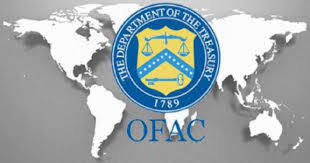OFAC Starts New Year with Enforcement Action against French Bank for Violations of Syrian Sanctions Program

In the new Biden Administration, companies should expect aggressive enforcement of trade sanctions. At the same time, in response to Russian aggression and the Solar Winds cyber-attack, OFAC is likely to implement new and even more restrictive sanctions against Russia. In anticipation, companies should elevate the importance of their sanctions compliance programs (SCPs) pursuant to the May 2019 OFAC Framework. Unfortunately, for many companies, sanctions compliance does not get the attention it deserves. Those companies that ignore sanctions risks are operating in peril.
While OFAC suffered a temporary disruption during the height of the pandemic last year, since then OFAC has quickly resumed its aggressive enforcement of sanctions.
UBAF, a French bank that facilitates trade finance between Europe and the Middle East, North Africa, sub-Saharan Africa, and Asia, agreed to pay $8,572,500 for 127 violations of the Syria-related sanctions.
Between August 2011 and April 2013, UBAF maintained US dollar accounts for sanctioned Syrian banks and indirectly assisted in conducting US dollar business transactions for these sanctioned banks. Most of the violations involved processing of internal transfers for Syrian entities that included correspondent bank transfers through a U.S. bank. The remaining violations were either “back-to-back” letter of credit transactions or other trade finance transactions involving sanctioned parties, which were processed through a U.S. bank.

In total, UBAF processed approximately $2.1 billion in prohibited US dollar transactions.
In some of these cases, UBAF processed a USD transfer between two of its clients—one sanctioned Syrian entity and one non- sanctioned client—on UBAF’s own books. UBAF then processed US dollar transfers on behalf of the non-sanctioned client through a U.S. bank. Also, in some of the internal transfers, UBAF conducted a foreign exchange (FX) transaction with a sanctioned Syrian customer on UBAF’s books, debiting an account in one currency and crediting the same sanctioned customer’s account in another currency.
For the back-to-back letter of credit transactions, a sanctioned Syrian entity was the beneficiary of export letters of credit or the applicant for import letters of credit that did not involve US dollar clearing, but the intermediary entered into or received one or more corresponding US dollar letters of credit to purchase or sell the same goods. For the other trade finance transactions, UBAF either issued a USD-denominated letter of credit on behalf of a sanctioned party or confirmed a USD-denominated letter of credit issued by a sanctioned bank and paid on the letter of credit through a U.S.-cleared transaction.

UBAF’s actions demonstrated knowledge of OFAC sanctions laws, but it incorrectly concluded that avoiding direct US dollar clearing on behalf of sanctioned parties was sufficient; thus, the bank acted recklessly by failing to exercise a minimal degree of caution or care in addressing the risks.
UBAF voluntarily disclosed the conduct to OFAC. UBAF had a compliance program during the time of the violations but has enhanced its compliance program by adopting a new Financial Security Charter based on the compliance policies of its largest shareholder, a large and sophisticated financial institution; conducting in-person and e-learning training programs for new and existing employees, reviewing its business lines and terminating certain high risk services; and creating a senior management Compliance Committee.















